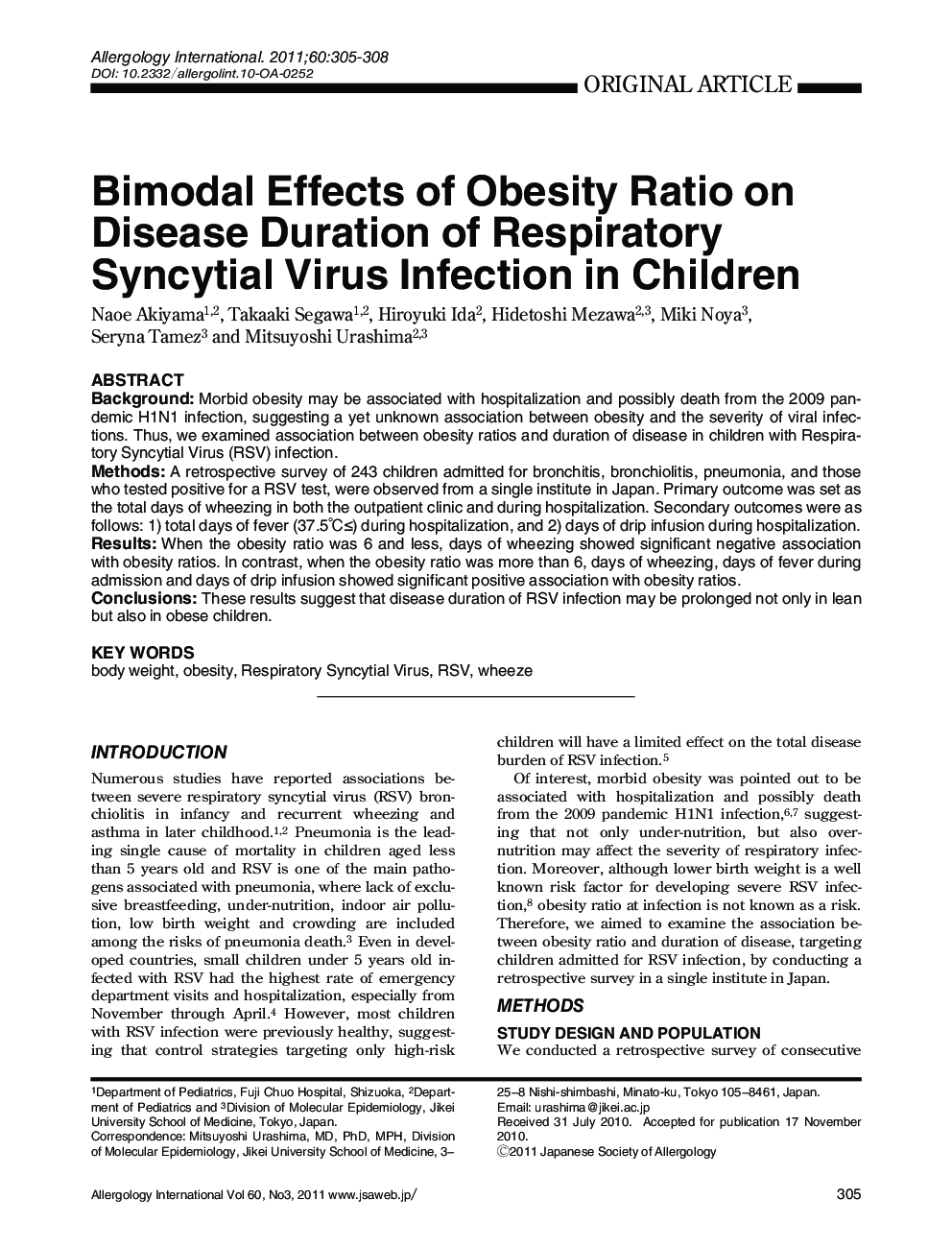| Article ID | Journal | Published Year | Pages | File Type |
|---|---|---|---|---|
| 3340905 | Allergology International | 2011 | 4 Pages |
ABSTRACTBackgroundMorbid obesity may be associated with hospitalization and possibly death from the 2009 pandemic H1N1 infection, suggesting a yet unknown association between obesity and the severity of viral infections. Thus, we examined association between obesity ratios and duration of disease in children with Respiratory Syncytial Virus (RSV) infection.MethodsA retrospective survey of 243 children admitted for bronchitis, bronchiolitis, pneumonia, and those who tested positive for a RSV test, were observed from a single institute in Japan. Primary outcome was set as the total days of wheezing in both the outpatient clinic and during hospitalization. Secondary outcomes were as follows: 1) total days of fever (37.5 °C <) during hospitalization, and 2) days of drip infusion during hospitalization. Results: When the obesity ratio was 6 and less, days of wheezing showed significant negative association with obesity ratios. In contrast, when the obesity ratio was more than 6, days of wheezing, days of fever during admission and days of drip infusion showed significant positive association with obesity ratios. Conclusions: These results suggest that disease duration of RSV infection may be prolonged not only in lean but also in obese children.
